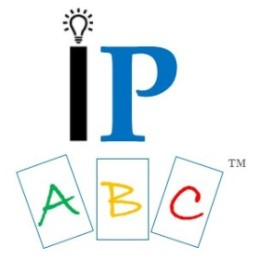
Nigeria. I publish a monthly investment e-newsletter The Yaks Investment.
The Yaks Investment publishes up-to-date information on incentives in
Nigeria available to investors. Apart from that, what our subscribers find most
valuable about the newsletter is access to our comprehensive and up-to-date
database of Agrotech & Fintech Businesses and Venture Capitalists in
Nigeria. This database is accessible through a URL link which directs readers
to the page where the database is electronically stored. In over 3 years, this
database has greatly made The Yaks Investment newsletter become well
known amongst both local and international private-equity investors with an eye
on the Nigerian market.
Recently, a new e-newsletter The Ark Investment published by Ark
Investments Nigeria Limited, a Lagos-based investment advisory company, was
launched. Apart from the confusingly similar name it has with The Yak’s
Investment, the new newsletter has also been practically “copying and
pasting” our comprehensive and up-to-date Database of Agrotech & Fintech
Businesses and Venture Capitalists in Nigeria in their ‘The Ark’s List of
Agrotech & Fintech Startups and Venture Capitalists in Nigeria.’
I am unhappy with The Ark Investment’s act as it infringes on my copyright in
the database. As the maker of the database, I invested so much resources into
collecting information from various sources and systematically arranging them
in a way readers and users would find invaluable. But when I instructed my
lawyers Bitrus Adamu & Co to write The Ark Investment about this
infringement, the company claimed that they have not infringed on my copyright.
Under Nigeria’s copyright law, does a database not enjoy copyright protection?

Answer
the Nigerian Copyright Act does not provide for copyright protection of a
database, a database may be protected as a compilation or directory as long as
sufficient effort is expended on it to give it an original character. This
copyright protection extends only to the compilation itself, and not to the
underlying data, facts, or materials in the database. Copyright protection is
irrespective of quality.
What qualifies The Yak’s
Investment’s Database
of Agrotech & Fintech Businesses and Venture Capitalists in Nigeria as a protectable work under the
Nigerian Copyright Act?
Under copyright law, databases are protected under the concept known as
compilation copyright. Compilation copyrights protect the collection and
assembling of data, facts, or other materials. While some countries or
international treaties specifically recognize compilation copyright and the
extent of protection it enjoys, the Nigerian Copyright Act does not contain
provisions for compilation copyright. Also, ‘database’ is neither defined nor
referred to in the Act. But in the interpretation section of the Act, section
39 defines a literary work as including, among other works, “encyclopaedias,
dictionaries, directories
and anthologies” and other
works similar thereto. According to the Oxford Dictionary, a
‘directory’ is “a book or website listing individuals or organizations
alphabetically or thematically with details such as names, addresses, and
telephone numbers”. Directories are a kind of compilation. Therefore, by virtue
of section 1(1)(a) of the Nigerian Copyright Act, a database which functions as
a directory is a literary work eligible for copyright protection.
So the general provisions of section 1(1)(b) and section 39 may be interpreted
as protecting a database as long as the data, facts, or materials collected and
arranged as a compilation serve the purpose of a directory or purposes similar
thereto. Section 1(1)(b) makes literary works eligible for copyright
protection.
The Yak’s Investment’s comprehensive and up-to-date ‘Database of Agrotech &
Fintech Businesses and Venture Capitalists in Nigeria’ is a list compiled by
Yakubu Jang and electronically available to subscribers as a database. This
database is a directory
of agrotech and fintech businesses and venture capitalists to enable
subscribers have access to their names, addresses, and other contact details.
Being a directory, it falls under literary works, thus eligible for protection
under the Act.
Under copyright law,
underlying data is not protected. This is why copyright in the database does
not prevent any person from extracting the unprotected data from it.
A database has been defined as a collection of independent works, data, or
other materials arranged in a systematic or methodical way and individually
accessible by electronic or other means.
A database of unprotectable works such as facts is protected only as a
compilation.
If The Ark Investment has only extracted information from the database such as
names, addresses, and contact details of the agrotech and fintech businesses
featured in the original Database
of Agrotech & Fintech Businesses and Venture Capitalists in Nigeria,
this would not be a violation of copyright law. But The Ark Investment would be
violating copyright if it copied the entire database, as long as the database
meets the statutory requirement of originality.
Since what The Ark
Investment has practically done is copy the entire database, this amounts to
copyright infringement, subject to section 1(2)(a) and (b) of the Act.
A mere collection of data, facts, or materials does not enjoy copyright
protection except there is originality.
Section 1(2) requires that (a) sufficient effort has been expended on making
the work to give it an original character and (b) the work has been fixed in
any definite medium of expression now known or later to be developed, from
which it can be perceived, reproduced, or otherwise communicated either
directly or with the aid of any machine or device. Since the database is
electronically stored and accessible on webpage, this is adequate.
Because a database is a collection and assembly of preexisting data, facts, or
materials, how the maker selects and arranges these to create an original work
is what determines whether it enjoys copyright protection. Sufficient effort
must have been expended on the collection and assembly of pre-existing data,
facts, and materials facts; the selection, or arrangement of those materials;
and the creation of the database as an original work of authorship.
How about The Ark
Investment’s act of publishing a similar investment newsletter?
Any person has the right to publish a newsletter, whether a similar newsletter
exists or not.
One of the fundamental concepts of copyright law is that copyright does not
protect ideas, information, or facts but instead protects the form in which
those ideas, information, or facts are expressed. This is known as the idea-expression
dichotomy, which means that copyright will not be infringed when works based on
the same ideas are independently created, provided the way in which those ideas
have been expressed is not copied.
Therefore, Yakubu Jang has no copyright in the idea for an investment
newsletter.
What about title and
straplines of the newsletter, including articles on investments?
Names and titles cannot be accorded copyright when they are not substantial
enough to attract copyright in themselves.
Titles and names can be protected as trademarks. If trademarked, you may sue
The Ark Investment for trademark infringement, since The Ark Investment
newsletter sounds confusingly similar to The
Yak Investment. If The
Yak Investment has not been trademarked, you may institute an
action for passing off since The Yak Investment enjoys goodwill and reputation
in Nigeria’s investment market. You must however prove that The Yak Investment
really enjoys goodwill and reputation and that The Ark Investment is unduly
benefiting from this goodwill by illegally coming up with a confusingly similar
newsletter, The Ark
Investment newsletter. Therefore, the title of the newsletter will
not attract copyright protection. Also, any strap lines such as ‘Invest wisely
with Yaks’ or ‘Your most reliable investment newsletter’, etc will be regarded
as too trivial or little in terms of creative effort to attract copyright. But
the logo, if any, of The
Yaks Investment newsletter may attract copyright protection as an
artistic work.
Apart from the database, analysis and explanations on investment opportunities
published as articles in the newsletter would attract copyright protection as
long as they are original. You or the authors of these articles would have no
doubt exercised a sufficient degree of skill, applied knowledge, or used
judgment in forming opinions by evaluating and comparing the different
investments opportunities in the Nigerian market. Subject to originality, such
articles are protected by copyright.
Therefore, if The Ark Investment also copied any substantial part of these
articles without authorization, this amounts to copyright infringement.
Consult an IP lawyer or law firm to help you determine all the legal options
available to you. Best wishes
ABC
